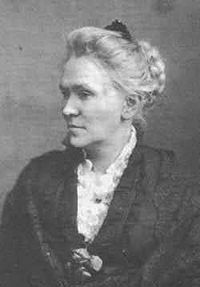THE MATILDA EFFECT
The other day, I came across the name of a woman in the suffragist movement whom I did not know, Matilda Josyln Gage. She was more radical than her cohorts, Susan B. Anthony and Elizabeth Cady Stanton, because she refused to narrow her concerns to only those of women. Instead, she aimed her indignation at all forms of repression, including those affecting the rights of Native Americans and African slaves. For each and every cause she risked imprisonment and the disdain of her colleagues who feared her outspoken behavior would denigrate their aims.

(Matilda Joslyn Gage 1826 — 1898)
The term “Matilda Effect” was coined, for example, to mock her strenuous opposition to the scientific community’s practice of paying women less than men for work done in the same field and without hope of honor or recognition.
I am ashamed that I, who consider myself enlightened about women’s rights issues, had never heard of her until she was referenced in Barbara G. Walker’s book “Man Made God.” According to Walker, Gage’s courage was boundless, treading without fear where only men might go. While the historian, Arnold Toynbee could write “Religion and its practices have consistently been one of women’s fiercest enemies,”* Gage was castigated for making the same point. Still, she persisted in her views, was a prolific writer on human rights and put her thoughts into practice by being active in the underground railway that helped slaves escape to freedom.
While Stanton and Anthony succeeded in the suffragist cause and are honored for their achievement, it is sad to discover that Matilda Josyln Gage’s history has become obscure. She was a woman of the people and a true American hero. I honor her memory today.
Anyone wishing to learn more about this extraordinary woman should read her book, “Women, Church and State” or Leila R. Brammer’s biography, “Excluded from Suffrage History.”
(* “Man Made God” by Barbara Walker, pg. 268)